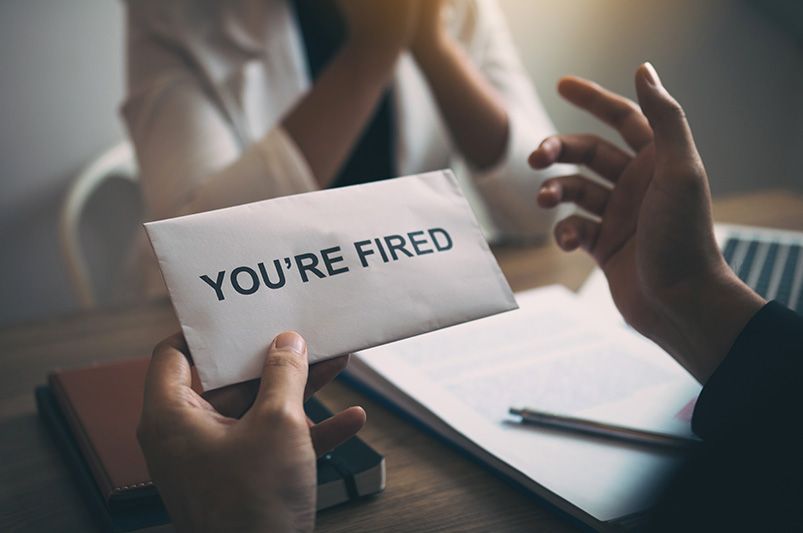Top Misconceptions About Wrongful Termination in California
Published: 11/09/2025 | Updated: 11/09/2025
Losing a job is stressful enough. But when it happens under questionable circumstances, the confusion about your rights can feel overwhelming. Many California employees assume that because the state follows “at-will” employment, they have no legal options. That’s one of the biggest myths—and one that prevents people from protecting their rights.
This blog will clear up the top misconceptions about wrongful termination in California, explain what “at-will” really means, and show you when an unlawful dismissal may give rise to a valid legal claim.
Myth #1: “California Is At-Will, So I Have No Case”
The Truth: California is indeed an at-will employment state. This means employers can terminate employees at any time, with or without cause. But there are important exceptions.
You cannot be fired for illegal reasons such as:
-
Discrimination (race, gender, age, disability, religion, etc.)
-
Retaliation for reporting harassment or unsafe working conditions
-
Exercising protected rights, such as family or medical leave
LSI tie-ins: employee protections, workplace discrimination, labor law violations.
Key Takeaway: At-will employment doesn’t give employers a free pass to break the law.
Myth #2: “If I Didn’t Have a Contract, I Can’t Claim Wrongful Termination”
The Truth: Written contracts aren’t the only way to prove wrongful termination. In fact, most California workers don’t have formal employment contracts.
-
You may have implied agreements, such as promises of job security from your employer.
-
Employee handbooks and policies can sometimes create enforceable obligations.
-
Even without a contract, state and federal laws protect you from unlawful dismissal.
Key Takeaway: Wrongful termination claims don’t always require a written contract.
Myth #3: “I Can Only Be Fired for Poor Performance”
The Truth: Employers often use performance as an excuse, but that doesn’t mean it’s the real reason. If your termination was actually tied to protected activity (like whistleblowing or filing a wage claim), you may still have a case.
-
Example: An employee fired after reporting harassment, even if labeled “poor performance,” may be protected under retaliation laws.
-
Documentation matters—keep emails, reviews, and notes that can show a pattern.
Key Takeaway: “Performance” isn’t always the true story behind a termination.
Myth #4: “If I Resigned, I Can’t File a Claim”
The Truth: Sometimes, quitting is effectively the same as being fired. This is known as constructive dismissal.
-
If workplace conditions become intolerable due to harassment, discrimination, or unsafe practices, your “choice” to resign may still qualify as wrongful termination.
-
Courts recognize that no reasonable employee should have to endure such conditions.
Key Takeaway: A forced resignation can still be wrongful termination.
Myth #5: “Small Businesses Don’t Have to Follow the Same Laws”
The Truth: Many California employment laws apply regardless of company size.
-
Anti-discrimination laws apply to employers with as few as 5 employees.
-
Retaliation and whistleblower protections apply even in smaller workplaces.
-
Wage and hour protections apply to almost all employers.
Key Takeaway: Business size doesn’t exempt an employer from following the law.

Myth #6: “Wrongful Termination Cases Always Lead to Huge Settlements”
The Truth: While some cases result in significant compensation, outcomes vary.
-
Damages may include lost wages, emotional distress, and sometimes punitive damages.
-
Many cases resolve through settlements, but the amounts depend on the facts, evidence, and strength of the claim.
-
Filing a claim is about justice and accountability, not just financial recovery.
Key Takeaway: Every case is unique—results depend on circumstances, not assumptions.
Myth #7: “I Can Handle This Without a Lawyer”
The Truth: Employment law in California is complex. From strict filing deadlines to gathering evidence, having a lawyer makes a significant difference.
-
A wrongful termination attorney can evaluate your case, explain your rights, and represent you in negotiations or court.
-
Employers usually have legal teams—having your own advocate levels the playing field.
Key Takeaway: Professional legal help improves your chances of a fair outcome.
Conclusion: Know the Facts, Protect Your Rights
Wrongful termination in California is often misunderstood. At-will employment doesn’t mean “anything goes.” Employers cannot fire you for illegal reasons like discrimination, retaliation, or whistleblowing. By knowing your rights and clearing up these misconceptions, you’re in a stronger position to protect yourself and your career.
If you suspect your termination wasn’t lawful, don’t rely on myths. Talk to a professional who can help you uncover the truth.
FAQs About Wrongful Termination in California
Q1: What is wrongful termination in California?
A: Wrongful termination occurs when an employer fires an employee for illegal reasons, such as discrimination, retaliation, or violating labor protections.
Q2: Can I sue my employer if I was fired without a written contract?
A: Yes. California law protects employees even without written contracts if the termination violates labor laws or public policy.
Q3: Does at-will employment mean I have no rights?
A: No. At-will means you can be fired without cause, but not for unlawful reasons such as discrimination or whistleblowing.
Q4: Can I file a wrongful termination claim if I quit my job?
A: Yes, if you resigned due to intolerable conditions, known as constructive dismissal.
Q5: How soon should I speak to a lawyer after being fired?
A: As soon as possible. Deadlines apply to employment claims, and early advice helps preserve evidence.
How JusticeGuys Can Help
At JusticeGuys, we connect you with experienced employment lawyers who understand California’s wrongful termination laws. If you believe you were unlawfully fired, we can help you evaluate your case and take the right steps.
Find a Lawyer with JusticeGuys and protect your rights today.
Wrongful Termination Myth-Busting Guide
Want a quick reference to separate fact from fiction?
Download our Free Wrongful Termination Myth-Busting Guide to:
-
Understand the top myths and truths about California termination laws
-
Learn which protections apply to you
-
Know when to talk to a lawyer
Download the Wrongful Termination Myth-Busting Guide Here and stop letting myths keep you from seeking justice.